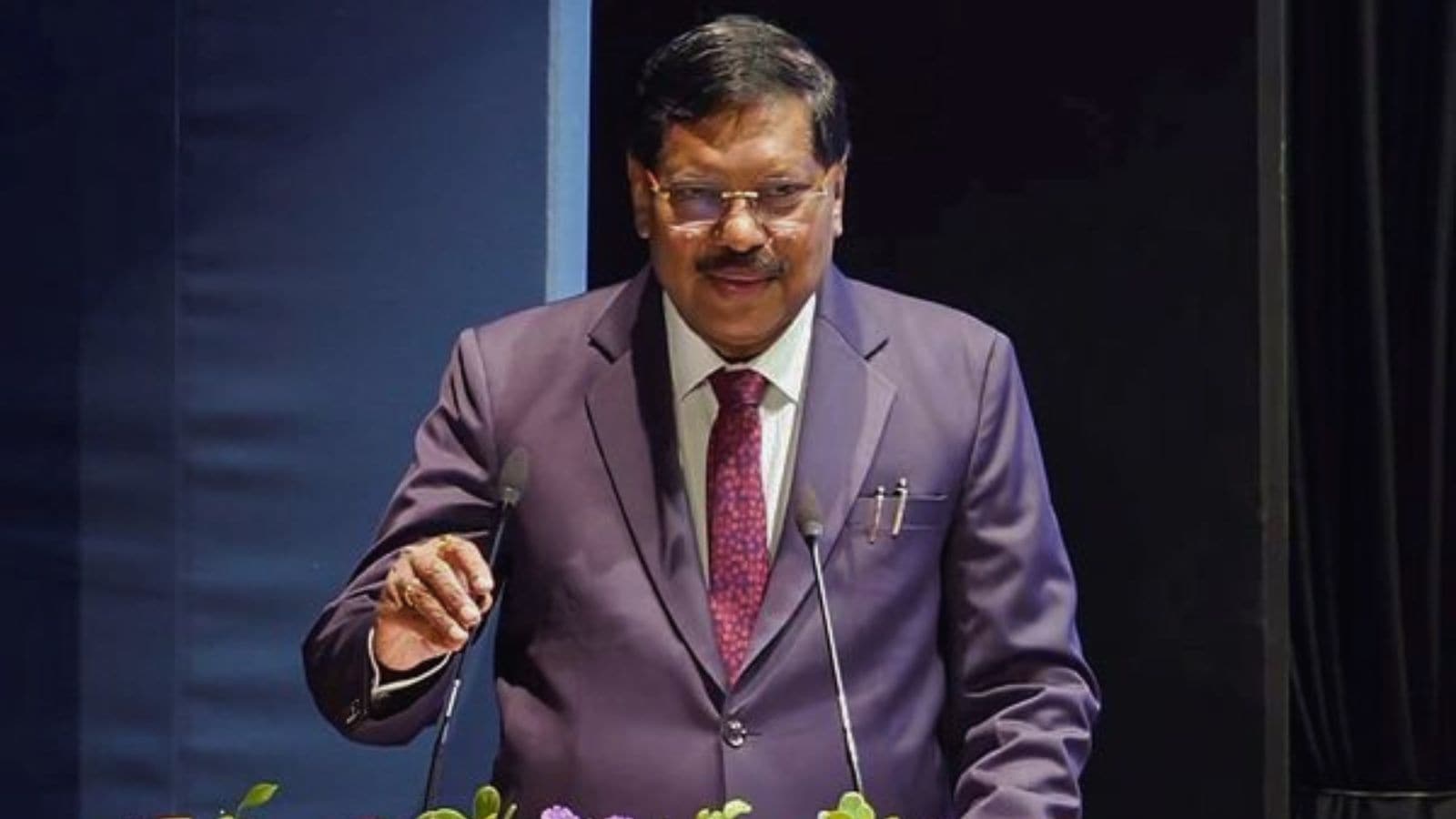Politics in West Bengal often revolves around the State’s cultural icons. Over the past few days, the two tallest names in the Bengal literary world — Rabindranath Tagore and Bankim Chandra Chattopadhyay — have become subjects of an intense political debate, with political parties appearing to be in a hurry to appropriate them.
In the first week of November, the West Bengal government issued a notification mandating that Tagore’s Banglar Maati Bangla Jol (Bengal’s land and Bengal’s water) be sung during morning assembly in all State-run schools. In December 2023, the government had declared the song as the State anthem and directed that it be played at all State government events along with the national anthem.
Around the same time that this notification was issued, the Bharatiya Janata Party (BJP) government at the Centre organised an event to observe 150 years of Chattopadhyay’s Vande Mataram. The BJP leadership in West Bengal immediately sensed an opportunity. It went to various locations associated with Chattopadhyay and highlighted neglect at a few of them. Its leaders accused the government of not paying enough respect to Vande Mataram and questioned the timing of making mandatory Tagore’s song at all State-run schools.
The Trinamool responded by accusing the BJP of disrespecting Tagore. The party said that BJP MP Vishweshwar Hegde Kageri had made derogatory remarks against Tagore. It held protests at Jorasanko Thakurbari, the ancestral home of the Nobel Laureate, in Kolkata. The BJP MP had said that the national anthem, penned by Tagore, was written “to welcome British officials” and opined that Vande Mataram should have instead been made the national anthem.
The debate appears to have reduced Tagore to being an icon of the Trinamool and Chattopadhyay as being a role model for the BJP. Chief Minister Mamata Banerjee admitted that there was an attempt to create a divide between the two poets. She also claimed that since scholars are divided on the time of composition of Vande Mataram, her government had set up a committee to observe the sesqui-centenary celebrations of the song.
Developments in neighbouring Assam added fuel to the debate. A local Congress leader was booked, at the instruction of Chief Minister Himanta Biswa Sarma, for singing Tagore’s song, Amar Sonar Bangla (O my Golden Bengal). Members of civil society, including academicians, descended on the streets of Kolkata singing Amar Sonar Bangla, which is also the national anthem of Bangladesh, in protest of the police action in Assam.
The Jana Gana Mana versus Vande Mataram debate was earlier raised by fringe elements. However, ahead of the 2026 Assembly polls, it has been mainstreamed in West Bengal politics. While it goes without saying that Tagore towers over other literary figures in West Bengal and that his ideals continue to form the essence of Bengali identity and culture, there is also ample space for other writers and poets in Bengal’s literary and cultural milieu.
The BJP has successfully fuelled the debate over the two poets. However, the Trinamool should not fall into this trap, particularly when the West Bengal government honours all the prominent icons from the State, including Syama Prasad Mookerjee, the founder of the Jana Sangha. It is unfortunate that the works of cultural icons are being pitted against one another, especially when their writings are rooted in patriotism and nationalism. Some scholars point out that when Chattopadhyay met a young Tagore in 1882, he put a garland around him calling him an “elegant poet of the new age”. In 1896, Tagore sang Vande Mataram at the Kolkata session of the Indian National Congress. Comparing the national anthem — Jana Gana Mana — with the country’s national song — Vande Mataram — is not only an exercise in futility, but also reflects a narrow understanding of India’s history and politics.
In an ideal world, poets and writers whose works form the basis of the freedom movement would remain above the fray of politics. Granted, we don’t live in such a world. But even if politicians cannot do so, they can be more prudent by honouring the contributions of all Indians and not pitting icons against one another. In an already polarised environment, such attempts of appropriation only deepen our political fault lines.

 1 hour ago
4
1 hour ago
4







 English (US) ·
English (US) ·